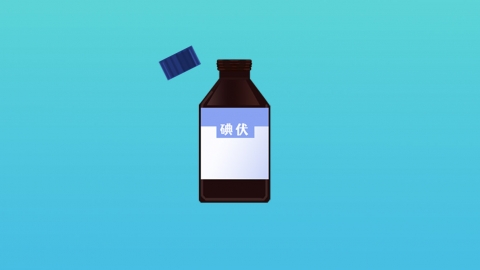What disinfectant should be used on facial wounds to prevent scarring?
For facial wounds, disinfectants such as normal saline, povidone-iodine, hydrogen peroxide solution, medical alcohol, and chlorhexidine solution can be used. Using these antiseptics correctly as directed by a healthcare provider can reduce the risk of infection and indirectly lower the likelihood of scarring. The choice should be based on the depth and type of wound. If the wound is deep, bleeding persists, or signs of infection appear, prompt medical attention is recommended.
1. Normal saline: Suitable for superficial, clean minor wounds. It is non-irritating, helps remove surface debris, maintains a moist wound environment, avoids damaging skin tissue, and creates favorable conditions for wound healing. Particularly appropriate for sensitive skin or infants.
2. Povidone-iodine: Suitable for most superficial wounds, including minor abrasions and cuts. It has good antibacterial effects with low irritation, causes minimal damage to wound tissue, and does not require iodine removal after application. This reduces the risk of infection and indirectly lowers the chance of scarring, making it a common choice for disinfecting facial wounds.

3. Hydrogen peroxide solution: Suitable for heavily contaminated wounds or those with necrotic tissue. It helps break down dead tissue and clean the wound, but may irritate fresh granulation tissue. It should not be used long-term. Use cautiously on superficial facial wounds to avoid excessive irritation that could impair healing.
4. Medical alcohol: Only suitable for disinfecting intact skin on the face, such as the skin surrounding the wound. It should not be applied directly into the wound due to its strong irritancy, which can damage wound cells, delay healing, and potentially increase the risk of scarring. Avoid contact with the open wound when using.
5. Chlorhexidine solution: Suitable for small-area, mildly infected facial wounds. It has a broad antimicrobial spectrum and low irritation, effectively inhibits bacterial growth, keeps the wound clean, promotes healing, and causes minimal irritation to skin and mucous membranes—making it appropriate for disinfecting facial wounds.
In daily care, keep the wound clean and dry, avoid touching it with hands, allow scabs to fall off naturally without picking or scratching, and protect the area from sun exposure when outdoors to minimize UV-induced irritation and support optimal wound healing.




